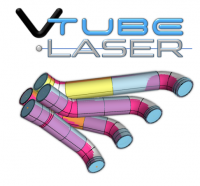VTube and Windows 10 - Compatibility and Performance Notes



Back to VTube-LASER / VTube-STEP
Compatibility
We have Windows 10 test computers, and can verify that VTube-STEP and VTube-LASER are 100% compatible with Windows 10.
Performance Recommendation: SSD Drive

Our VTube-LASER Windows 10 computer is a high-end (powerful) Dell M6800 laptop with 16 GB of RAM. It was originally purchased with a standard mechanical 1TB hard drive. With this original setup, Windows 10 startup and program load time was much slower than our Windows 7 computers.
We swapped the original drive with a Samsung EVO 1TB Solid State Drive. This made Windows 10 perform 4 to 5 times times faster for Windows startup and program loads. It's performance is now similar to our Windows 7 computers. All of our Windows 10 computers are now required to have SSD type drives.
We strongly recommend that you require an SSD drive for computers that use Window 10.
Windows 10 Gaming Systems with Raptr Online Gaming Issues

The Plays.TV program that is used for Raptr.com online gaming comes installed on some Windows 10 gaming computers. If you have this system, then there is a possibility that the Raptr drivers will cause VTube to crash at startup. See how to fix this in: Issues with Raptr Online Gaming App PLAYS.TV
Skipping/Clicking Sound or No Sound
Sometimes Windows 10 has issues like clicking sound or no sound when there should be. We found that this issue can be resolved like this:
- Step 1: Right-click the sound icon in the taskbar located at the bottom right of the screen and select Playback Devices from the context menu.
- Step 2: Select the current playback device in use and by default it should be the speakers. Double-click on it to open its properties window.
- Step 3: Got to Advanced section and change the bit rate to either of the following - 24bit/44100 Hz or 24bit/192000Hz - depending on the speaker configuration.